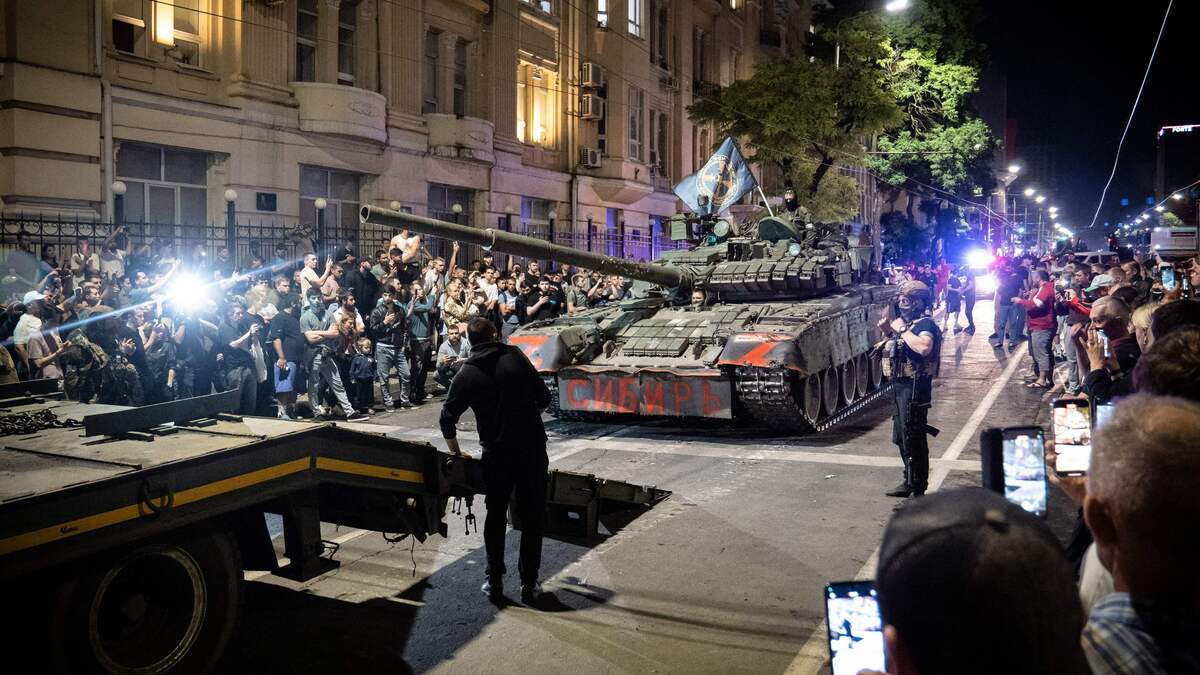
Members of Wagner group prepare to pull out from the headquarters of the Southern Military District to return to their base in Rostov-on-Don, late on Saturday. Roman Romokhov/AFP via Getty Images hide caption

Members of Wagner group prepare to pull out from the headquarters of the Southern Military District to return to their base in Rostov-on-Don, late on Saturday.
Roman Romokhov/AFP via Getty ImagesRussian President Vladimir Putin faced a direct challenge to his authority over the weekend. Mercenary fighters with the Wagner group took over a military headquarters and launched a march toward Moscow.
The group's leader, Yevgeny Prigozhin, eventually called off the uprising. He's apparently accepted a deal to live in exile, and claims the weekend's events were a protest, not an attempt to overthrow the government.
NPR's Charles Maynes in Moscow, and Greg Myre in Kyiv, explain what the turmoil could mean for the future of Putin's rule and the course of the war in Ukraine.
Email us at
This episode was produced by Connor Donevan and Erika Ryan. It was edited by William Troop and Nishant Dahiya. Our executive producer is Sami Yenigun.

 Live Radio
Live Radio